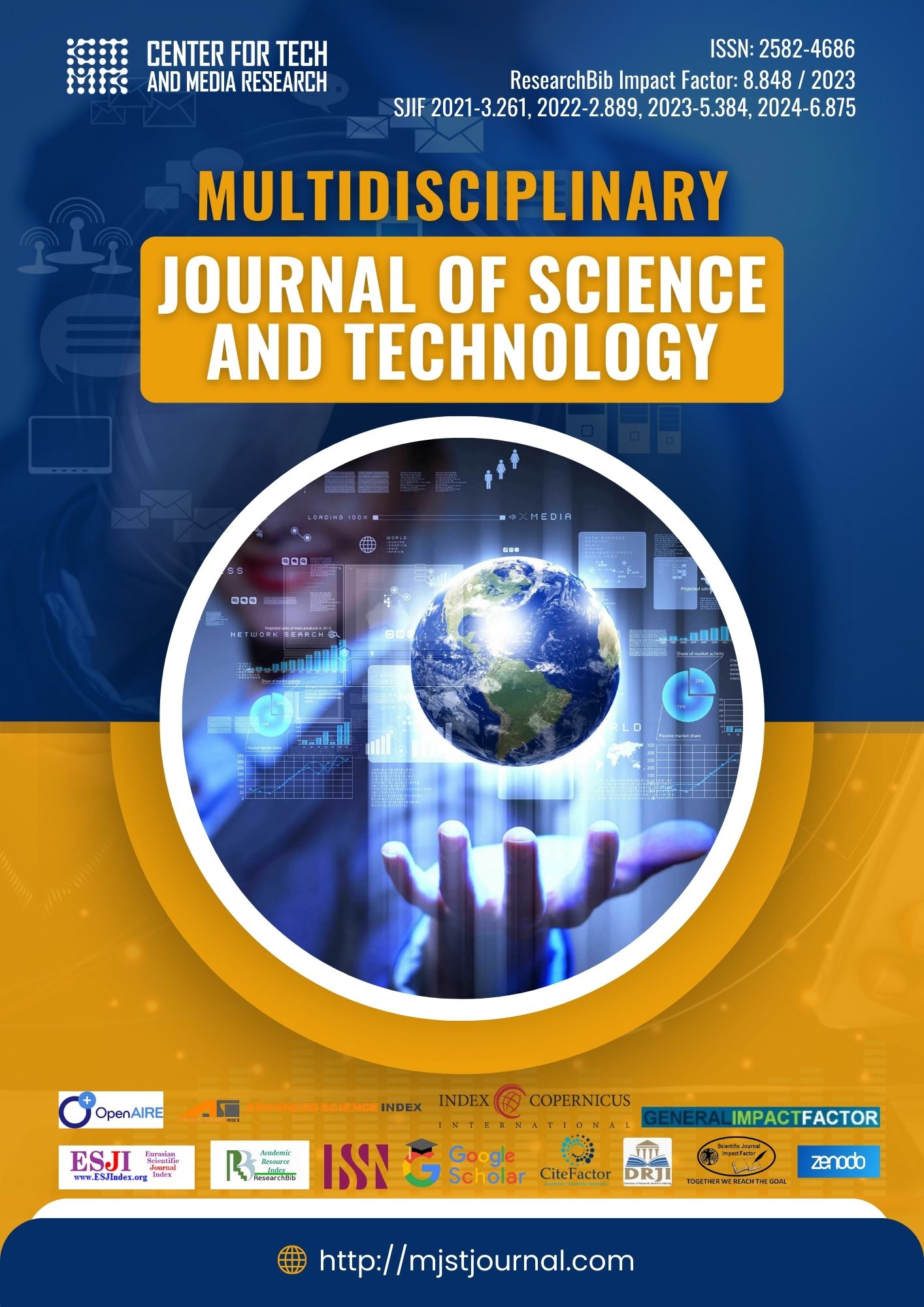EXPLORING MOTION CAPTURE ALGORITHMS IN COMPUTER VISION USING INTEL DEPTH CAMERA
M.D.Ollaberganova
T.A. Xudaybergenov
Keywords: motion capture, virtual reality, triangulation, computer vision, machine learning
Abstract
The analysis of existing approaches to tracking the human body revealed the presence of
problems when capturing movements in a three-dimensional coordinate system. The promise of
motion capture systems based on computer vision is noted. Existing research on markerless motion
capture systems only considers positioning in 2D space. Therefore, the goal of the study was to
improve the accuracy of determining the coordinates of the human body in three-dimensional
coordinates by developing a motion capture method based on computer vision and triangulation
algorithms
References
1. Lind C.M., Abtahi F., Forsman M. Wearable Motion Capture Devices for the Prevention
of Work-Related Musculoskeletal Disorders in Ergonomics – An Overview of Current
Applications, Challenges, and Future Opportunities. Sensors. 2023;23(9):4259.
2. Sers R., Forrester S., Moss E., Ward S., Ma J., Zecca M. Validity of the Perception
Neuron Inertial Motion Capture System for Upper Body Motion Analysis. Measurement.
2020;149:107024.
3. Bauer P., Lienhart W., Jost S. Accuracy Investigation of the Pose Determination of a VR
System. Sensors. 2021;21(5):1622.
4. Irshad M.T., Nisar M.A., Gouverneur P., Rapp M., Grzegorzek M. AI Approaches
towards Prechtl’s Assessment of General Movements: A Systematic Literature Review. Sensors.
2020;20(18):5321.
5. Merriaux P., Dupuis Y., Boutteau R., Vasseur P., Savatier X. A Study of Vicon System
Positioning Performance. Sensors. 2017;17(7):1591.
6. Nakano N., Sakura T., Ueda K., Omura L., Kimura A., Iino Y., et al. Evaluation of 3D
Markerless Motion Capture Accuracy Using OpenPose with Multiple Video Cameras. Frontiers
in Sports and Active Living. 2020;2:50.
7. Coronado E., Fukuda K., Ramirez-Alpizar I.G., Yamanobe N., Venture G., Harada K.
Assembly Action Understanding from Fine-Grained Hand Motions, a Multi-camera and Deep
Learning Approach. In: Proc. IEEE/RSJ International Conference on Intelligent Robots and
Systems (IROS). New York, NY: IEEE; 2021. P. 26282634.
8. Tausif Diwan, Anirudh G., Tembhurne J.V. Object Detection Using YOLO: Challenges,
Architectural Successors, Datasets and Applications. Multimedia Tools and Applications.
2023;82(6):9243–9275.
9. Wei Liu, Anguelov D., Erhan D., Szegedy C., Reed S., Cheng-Yang Fu., et al. SSD:
Single Shot MultiBox Detector. In book: Leibe B., Matas J., Sebe N., Welling M. (eds). Computer
Vision – ECCV 2016. Cham: Springer. 2016;9905:21– 37.
10. Bharati P., Pramanik A. Deep Learning Techniques—R-CNN to Mask R-CNN: A
Survey. In book: Das A., Nayak J., Naik B., Pati S., Pelusi D. (eds). Computational Intelligence in
Pattern Recognition. New York, NY: Springer. 2020;999:657–668.
11. Bajpai R., Joshi D. MoveNet: A Deep Neural Network for Joint Profile Prediction
across Variable Walking Speeds and Slopes. IEEE Transactions on Instrumentation and
Measurement. 2021;70:1–11.
12. Ghanbari S., Ashtyani Z.P., Masouleh M.T. User Identification Based on Hand
Geometrical Biometrics Using Media-Pipe. In: Proc. 30th International Conference on Electrical
Engineering (ICEE). New York, NY: IEEE; 2022. P. 373–378.
13. Weijian Mai, Fengjie Wu, Ziqian Guo, Yuhan Xiang, Gensheng Liu, Xiaobin Chen. A
Fall Detection Alert System Based on Lightweight Openpose and Spatial-Temporal Graph
Convolution Network. Journal of Physics: Conference Series. 2021;2035:012036.
14. Szeliski R. Recognition. In book: Computer Vision: Algorithms and Applications.
London: Springer; 2011. P. 575–640.

















